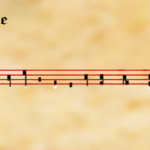Well, the little I’ve managed to read of it today, I’ve loved, and you will likely love it, too, because in my skimming, I’m finding it gorgeous.
In my skimming, my eyes landed on this bit, which is rather glorious, and a true challenge to all of us. It more or less explains what Pope Francis meant when he called proselytism “solemn nonsense”:
Loving others is a spiritual force drawing us to union with God; indeed, one who does not love others “walks in the darkness” (1 Jn 2:11), “remains in death” (1 Jn 3:14) and “does not know God” (1 Jn 4:8). Benedict XVI has said that “closing our eyes to our neighbour also blinds us to God”,[209] and that love is, in the end, the only light which “can always illuminate a world grown dim and give us the courage needed to keep living and working”.[210] When we live out a spirituality of drawing nearer to others and seeking their welfare, our hearts are opened wide to the Lord’s greatest and most beautiful gifts. Whenever we encounter another person in love, we learn something new about God. Whenever our eyes are opened to acknowledge the other, we grow in the light of faith and knowledge of God. If we want to advance in the spiritual life, then, we must constantly be missionaries. The work of evangelization enriches the mind and the heart; it opens up spiritual horizons; it makes us more and more sensitive to the workings of the Holy Spirit, and it takes us beyond our limited spiritual constructs. A committed missionary knows the joy of being a spring which spills over and refreshes others. Only the person who feels happiness in seeking the good of others, in desiring their happiness, can be a missionary. This openness of the heart is a source of joy, since “it is more blessed to give than to receive” (Acts 20:35). We do not live better when we flee, hide, refuse to share, stop giving and lock ourselves up in own comforts. Such a life is nothing less than slow suicide.
273. My mission of being in the heart of the people is not just a part of my life or a badge I can take off; it is not an “extra” or just another moment in life. Instead, it is something I cannot uproot from my being without destroying my very self. I am a mission on this earth; that is the reason why I am here in this world. We have to regard ourselves as sealed, even branded, by this mission of bringing light, blessing, enlivening, raising up, healing and freeing. All around us we begin to see nurses with soul, teachers with soul, politicians with soul, people who have chosen deep down to be with others and for others. But once we separate our work from our private lives, everything turns grey and we will always be seeking recognition or asserting our needs. We stop being a people.
Evangelization, then, is most effective when it is a natural element of Christ-focused love, of seeking out the Christ already extant in another, rather than trying to preach Christ into him or her.
But I’m going to grouse a little bit, now — joyfully, because I have been exhorted to joy and I’ll work on that! — but grouse, I must. The exhortation is 51,000 words, and there has been no time in the workday to give it more than a cursory glance. I really wish I’d had a chance to read this in advance, so I could write in an informed way — today, as the document dropped — when people are most curious and before they’ve accepted “the gist of it” from mainstream, secular media voices and moved on to the next thing.
Back when Pope Paul VI was dropping Humanae Vitae, there was no alternative media in place to help break the message down into thoughtful, digestible morsels that could both instruct people and encourage them to read that (really, very brief) encyclical for themselves. People relied upon secular news analysis to condense the message for them, and in HV’s case, that meant, “sex bad, the pill bad, the church is square and out of touch.
All of Paul’s prophetic concerns, all of his nuanced expressions of compassion, were lost to that narrative, and for most of the world, they remain lost. The church is in a different position, now — she isn’t reliant upon a limited means of exposition — she has faithful resources who are ready and willing to help disseminate and explain the pope’s message to those who will never find the time (or the inclination) to read the whole thing.
She needs to get into the habit of using us.
In 2011, when the Vatican met with an international group of bloggers, we asked whether Catholic bloggers might sometimes be provided with embargoed copies of these encyclicals and exhortations. I wish that would happen. Even a summary email with bullet points sent out of Rome the night before release would help us to hit the ground running, rather than scrambling to find a salient point or two to bring to the fore.
That said, some bloggers have done a good job of cutting to the chase — I particularly like Tom McDonald’s visual summary — so while I have little-to-nothing to say about Evangelii Gaudium (I hope to sit with the document tonight to finally read it) here is a round-up of some first thoughts by folks who either have more free time than I do to begin with or, more likely, they manage their time better!
The invaluable John Thavis calls it “a remarkable and radical document”
John L. Allen, Jr calls it “Francis’ ‘I have a dream’ speech”
Fr. Dwight calls it “a bombshell of an exhortation”
Fr. James Martin calls it “a new vision” for the church
Marcel LeJeune has Ten reasons you should read it
The UK Herald has “key quotes” from the document
Aleteia has what they call the 21 most important quotes.
Rocco Palmo connects it to Thanksgiving, and from what I’ve read it does seem like good, positive fodder for festal conversation.
Tomorrow, hopefully, before I start making the stuffing and the sweet potato pie, I’ll have more to write on it.













